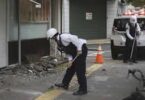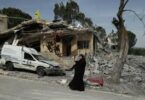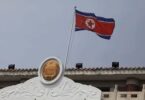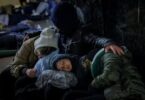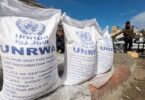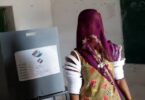Monitoring Desk
SEOUL: Temperature checks on voters, separate booths for those with fevers, and special polling times for the quarantined: South Koreans headed to the polls Wednesday with a big turnout expected despite the coronavirus threat.
South Korea is among the first countries with a major virus outbreak to hold a national election since the global pandemic began, and a raft of safety measures were in place around the ballot, as well as affecting the campaigns.
The parliamentary poll — widely expected to bolster the ruling Democratic party’s position — kicked off at 6:00 am (2100 GMT Tuesday) with 43.9 million voters eligible to cast ballots.
Voters in obligatory masks lined up at least one metre (three feet) apart outside polling stations and had their temperatures checked before being allowed in.
All had to clean their hands with sanitiser and don plastic gloves, while those with fevers cast their ballots in separate booths that were disinfected after each use.
“It is done very well,” said 80-year-old voter Kim Gwang-woo. “Because of the coronavirus, people are keeping their distance and everyone is wearing gloves.”
South Korea was among the first countries to be hit by the disease outside China, where the coronavirus first emerged.
For a time, the country had the world’s second-largest outbreak, before it was largely brought under control through widespread testing and a contact-tracing drive, along with widely observed social distancing.
Those self-quarantining at home will be allowed to vote immediately after the polls’ 6:00 pm close, as long as they do not show virus symptoms, and must return to their residences by 7:00 pm.
Special polling stations were set up at eight central quarantine facilities at the weekend to enable the confined to vote.
But anyone who is staying at home and has developed symptoms is effectively disenfranchised.
Campaigning was also affected by the outbreak: instead of the traditional handshakes and distributing of name cards, candidates kept their distance from citizens, bowing and offering an occasional fist bump.
Many turned to online media such as YouTube and Instagram to connect with voters, while some even volunteered to disinfect parts of their constituencies.
– Record early turnout –
A survey conducted by Gallup Korea last week showed that 27 percent of respondents were reluctant to vote due to the epidemic.
But 72 percent said they were not worried, and a high turnout is expected after 11.7 million people, including President Moon Jae-in, voted early over the weekend.
South Korea’s relatively quick and effective handling of the epidemic has been a boon for the left-leaning Moon ahead of the vote, largely seen as a referendum on his performance.
Just a few months ago he was assailed by critics over sluggish economic growth and his dovish approach to North Korea.
But South Korea on Wednesday announced 27 new virus cases — the seventh consecutive day with fewer than 40. Overall, the country has had nearly 11,000 infections and 225 deaths.
Kim Ki-chul, 33, said the recent falls in new cases encouraged him to come out to cast his ballot.
“Compared to the way the epidemic has been handled in other countries, South Korea showed outstanding disinfecting and containment capabilities, which increased my trust in the government,” he added.
Moon’s approval rating has jumped from 41 percent in late January to 57 percent last week, according to Gallup polls.
Courtesy: (AFP)

